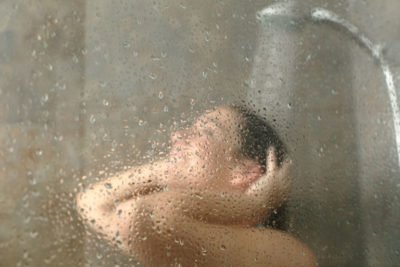- Identify the type of system
- Test the temperature and pressure relief valve
- Replace the sacrificial anode

Hot water is an essential component of modern life. Both homes and businesses use hot water for washing up and performing other essential tasks. As important as hot water is, it seems as though we often take it for granted, until the hot water system stops working, that is. Fortunately, there are certain steps you can take to help keep your hot water system in top working order over the years. Here’s what you need to do:
Identify the Type of System
First, you’ll need to determine whether you are dealing with a tank system or a continuous flow system. Because continuous flow systems do not actually store any hot water, they require far less maintenance to keep them working properly. For the rest of this discussion, we will assume you are using a hot water system with a water tank, as these require more maintenance on a regular basis.
Test the Temperature and Pressure Relief Valve
As its name suggests, the temperature and pressure relief valve (TPR or T&P valve) works to maintain the appropriate level of temperature pressure within your tank. If the pressure is allowed to fluctuate, it can put unnecessary strain on the interior tank, which can weaken its structure over time, leading to cracks and other damage. The first thing you should check is whether or not your TPR valve is constantly running. If it is, that is a likely sign that it requires maintenance and is beginning to deteriorate and may need to be replaced.
You’ll also need to replace the valve if you notice any leaking in the area around it. If the valve is not continuously running and there is no leakage in the area, this is a good sign. However, it is not a guarantee that the valve is functioning correctly. You’ll still need to test it to know for sure. Although the frequency of required testing will vary by manufacturer, the general guideline is to check the valve about every six months.
When you test the TPR valve, extremely hot water will be released from your hot water tank, so it is crucial that you protect yourself. Be sure to wear pants, long sleeves, closed shoes and heavy gloves so you don’t burn yourself. Make sure that there is nothing blocking the end of the outlet pipe, including yourself. Stand off to the side, as far away from the end of the pipe as possible.
To test the valve, carefully lift its handle. If the handle will not move easily, don’t try to force it. You’ll need to replace the valve if the handle won’t move. Assuming that you are able to lift the handle, hot water should begin to flow through the outlet pipe. When you lower the handle to close the valve, the flow of water should stop. If it does not, the valve is not working properly and will need to be replaced.


The useful life of a TPR valve will vary but it is generally about two years. If your TPR valve needs to be replaced, don’t try to do it yourself. Working with a hot water system can be incredibly dangerous if you do not fully know what you are doing. It will require working with natural gas or electricity as well. This type of work should always be entrusted to an experienced and licensed plumber or other hot water service technician for your safety.
Replace the Sacrificial Anode
The sacrificial anode is a small metal rod that hangs down in the interior of your hot water tank. Typically, these rods are made of aluminium or magnesium with a zinc coating. They attract minerals and other impurities in the water that can adhere to your tank and cause it to rust. With the sacrificial anode in place, it rusts instead so that your tank does not. However, the sacrificial anode will deteriorate over time. It will need to be replaced periodically to continue to protect your tank.
As with the TPR valve, you should always hire a professional to replace your sacrificial anode so you don’t risk injury to yourself or damage to your property. In most cases, this will need to be done about every five years or so. Doing so can greatly extend the life of your hot water system. Failure to conduct this regular maintenance is the most common cause of failure for hot water systems.
We would be happy to perform these general maintenance tasks for you so that your hot water system will always be fully operational when you need it most. Get in touch with us today to learn more about our plumbing services and how we can help you with your home or business. We have the skills and expertise to keep everything flowing smoothly for years to come.
